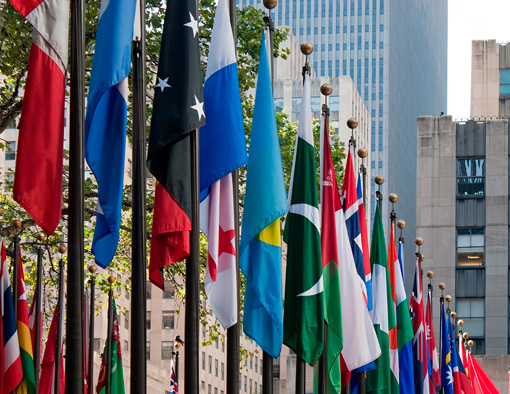7 Global cooperation: a way forward?
The last component of global health that you will consider in this course is global cooperation – this refers to the call for the cooperation and collaboration of different sectors within and between countries (Brown et al., 2006) to increase access to healthcare, ensure wellbeing and health of populations, and to monitor disease and control outbreaks.
You have seen how population ageing and increasing life expectancy are global phenomena, how both these phenomena are creating concerns for the health of populations and how these concerns are shared between countries. In addition, the health of older populations is influenced partly by global forces, such as globalisation, which creates interdependencies between countries. This all suggests that global cooperation, not just between governments but also with the media, non-governmental organisations and private companies, is vital to address the potential global health challenges of population ageing and increasing life expectancy. For example, through the coordination and collaboration of research activities across companies around the world, knowledge about the prevention and treatment of non-communicable diseases and conditions could be built more effectively and efficiently.
Global cooperation is also required to address the global influences on lifestyle that are resulting in non-communicable diseases and conditions in later life. Encouraging behaviour change will only have so much impact; addressing global influences, such as the expansion of fast-food products into a country, are pivotal and this sort of action demands cooperation at a global level.

